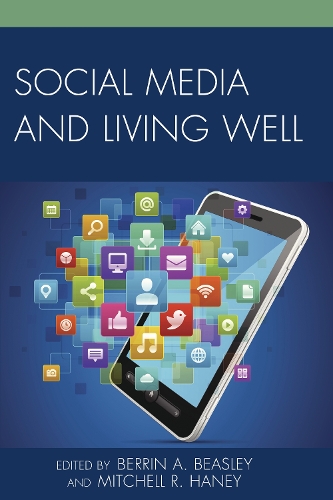
Social Media and Living Well
(Paperback)
Available Formats
Publishing Details
Social Media and Living Well
By (Author) Berrin A. Beasley
Edited by Mitchell R. Haney
Contributions by Alan B. Albarran
Contributions by Paul Bloomfield
Contributions by Kathy Brittain Richardson
Contributions by Frederick R. Carlson
Contributions by Deni Elliott
Contributions by Ken Gilroy
Contributions by Sarah A. Mattice
Contributions by Joseph Ulatowski
Bloomsbury Publishing PLC
Lexington Books
29th August 2016
United States
Classifications
Tertiary Education
Non Fiction
Ethics and moral philosophy
Digital and information technologies: social and ethical aspects
302.231
Physical Properties
Paperback
168
Width 152mm, Height 228mm, Spine 12mm
240g
Description
What is well-being Is it a stable income, comfortable home, and time shared with family and friends Is it clean drinking water and freedom from political oppression Is it finding Aristotles Golden Mean by living a life of reason and moderation Scholars have sought to define well-being for centuries, teasing out nuances among Aristotles writings and posing new theories of their own. With each major technological shift this question of well-being arises with new purpose, spurring scholars to re-examine the challenge of living the good life in light of significantly altered conditions. Social media comprise the latest technological shift, and in this book leading scholars in the philosophy and communication disciplines bring together their knowledge and expertise in an attempt to define what well-being means in this perpetually connected environment. From its blog prototype in the mid-to-late-2000s to its microblogging reality of today, users have been both invigorated and perplexed by social medias seemingly near-instant propagation. Platforms such as Facebook, Twitter, YouTube, Instagram, and LinkedIn have been hailed as everything from revolutionary to personally and societally destructive. In an exploration of the role social media play in affecting well-being, whether among individuals or society as a whole, this book offers something unique among academic tomes, an opening essay by an executive in the social media industry who shares his observations of the ways in which social communication conventions have changed since the introduction of social media. His essay is followed by an interdisciplinary academic exploration of the potential contributions and detractions of social media to well-being. Authors investigate social medias potential influence on friendship, and on individuals physical, emotional, social, economic, and political needs. They consider the morality of online deception, how memes and the very structure of the internet inhibit rational social discourse, and how social media facilitate our living a very public life, whether through consent or coercion. Social media networks serve as gathering places for the exchange of information, inspiration, and support, but whether these exchanges are helpful or harmful to well-being is a question whose answer is necessary to living a good life.
Reviews
We all want to live the good life, but living well starts to look different when we increasingly live through our devices and on our screens. What counts as being a happy and ethical person in the age of social media How is a technologically mediated community or marketplace ethically different from those we inhabit face to face Is an online deception is really a lie Do internet memes create new stereotypes that undermine our ability to respect other members of society Does a community of online friends and followers change the very nature of friendship In Social Media and Living Well, Beasley and Haney collect nine thought-provoking attempts to consider questions like these. Policy makers, students of philosophy, and those who work in technology and media will all benefit from the opportunity this accessible and compact volume provides to learn how to think more clearly about our place in the digital world and about how to live with character when we increasingly have only 140 characters to work with. -- Robert Barnard, University of Mississippi
Author Bio
Berrin A. Beasley is associate professor of communication at the University of North Florida. Mitchell Haney is associate professor of philosophy and co-director of the Florida Blue Center for Ethics at the University of North Florida.
